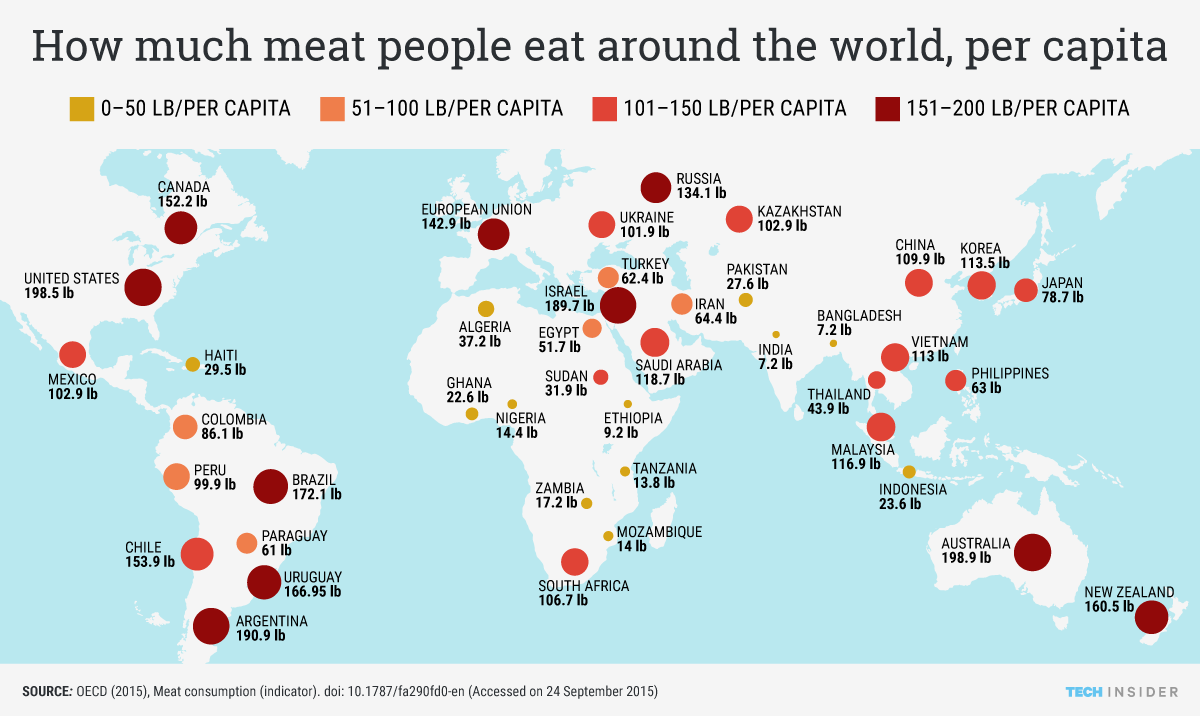Scientists serve up 100% real meat, without the cruelty or carbon

Lab-grown meat from animal cells has attracted funding from Bill Gates and Richard Branson Image: REUTERS/Beck Diefenbach

Get involved with our crowdsourced digital platform to deliver impact at scale
Stay up to date:
Agriculture, Food and Beverage
Imagine a world where even the most committed vegan can bite into a beef burger without betraying their principles. Science has made this unlikely scenario a reality.
The argument that “meat is murder” could become a thing of the past, thanks to groundbreaking technology that produces real meat from animal cells.
Memphis Meats, which is backed by billionaires Bill Gates and Richard Branson, is developing a process that churns out beef, chicken and duck, without the need to raise animals for slaughter.
Not only does this fledgling technology safeguard animal welfare, it also provides a solution to the sustainability and human health issues of raising livestock for meat.
With other companies also investing in the technology, it is hoped that so-called ‘clean meat’ could soon be available on the mass market.

Meat is big business
Despite the arguments against eating meat, billions of people around the world continue to do so. Consumers spend almost $1 trillion on meat every year, and in parts of the world demand is expected to double in the coming decades.

Clean meat could provide the ingredients to solving some major ethical and environmental problems.
Early products have been eye-wateringly expensive – the first clean-meat burger cost around $330,000 in 2013. But Memphis Meats is now producing clean meat for $40 per gram. The ultimate goal is for it to be cheaper than the least expensive conventionally produced chicken.
The science behind clean meat
Clean meat is produced by using a small sample of animal cells that regenerate themselves outside of the animal in large steel tanks.
The resulting product is 100% real meat, which advocates claim tastes just as good as traditionally sourced meat. It’s also guaranteed to be free of all antibiotics, E. coli or salmonella.
Memphis Meats’ method of clean meat production requires just one tenth of the water and one hundredth of the land that is currently used to raise livestock.
The revolutionary process has already won over animal rights groups, with People for the Ethical Treatment of Animals (PETA) praising clean meat technology for its potential to save the lives of billions of animals each year.

Funding the future of clean meat
Clean meat is causing quite a stir among the business community, with a number of major corporations clamouring to invest in the technology.
Memphis Meats has so far raised $22 million, with the majority of funding coming from investors including Gates, Branson and Cargill Inc, one of the world’s largest agricultural companies.
Commenting on his investment, Branson told Bloomberg News: “I believe that in 30 years or so we will no longer need to kill any animals and that all meat will either be clean or plant-based, taste the same and also be much healthier for everyone.”
Meanwhile, a number of other companies, such as Mosa Meat and SuperMeat, are competing to be the first to bring clean meat to consumers’ plates.

Don't miss any update on this topic
Create a free account and access your personalized content collection with our latest publications and analyses.
License and Republishing
World Economic Forum articles may be republished in accordance with the Creative Commons Attribution-NonCommercial-NoDerivatives 4.0 International Public License, and in accordance with our Terms of Use.
The views expressed in this article are those of the author alone and not the World Economic Forum.
The Agenda Weekly
A weekly update of the most important issues driving the global agenda
You can unsubscribe at any time using the link in our emails. For more details, review our privacy policy.
More on Agriculture, Food and BeverageSee all
Charlotte Edmond
April 11, 2024
Douglas Broom
April 3, 2024
Brian D’Silva and Abir Ibrahim
March 19, 2024
Clara Clemente Langevin and Erica Dias
February 29, 2024






